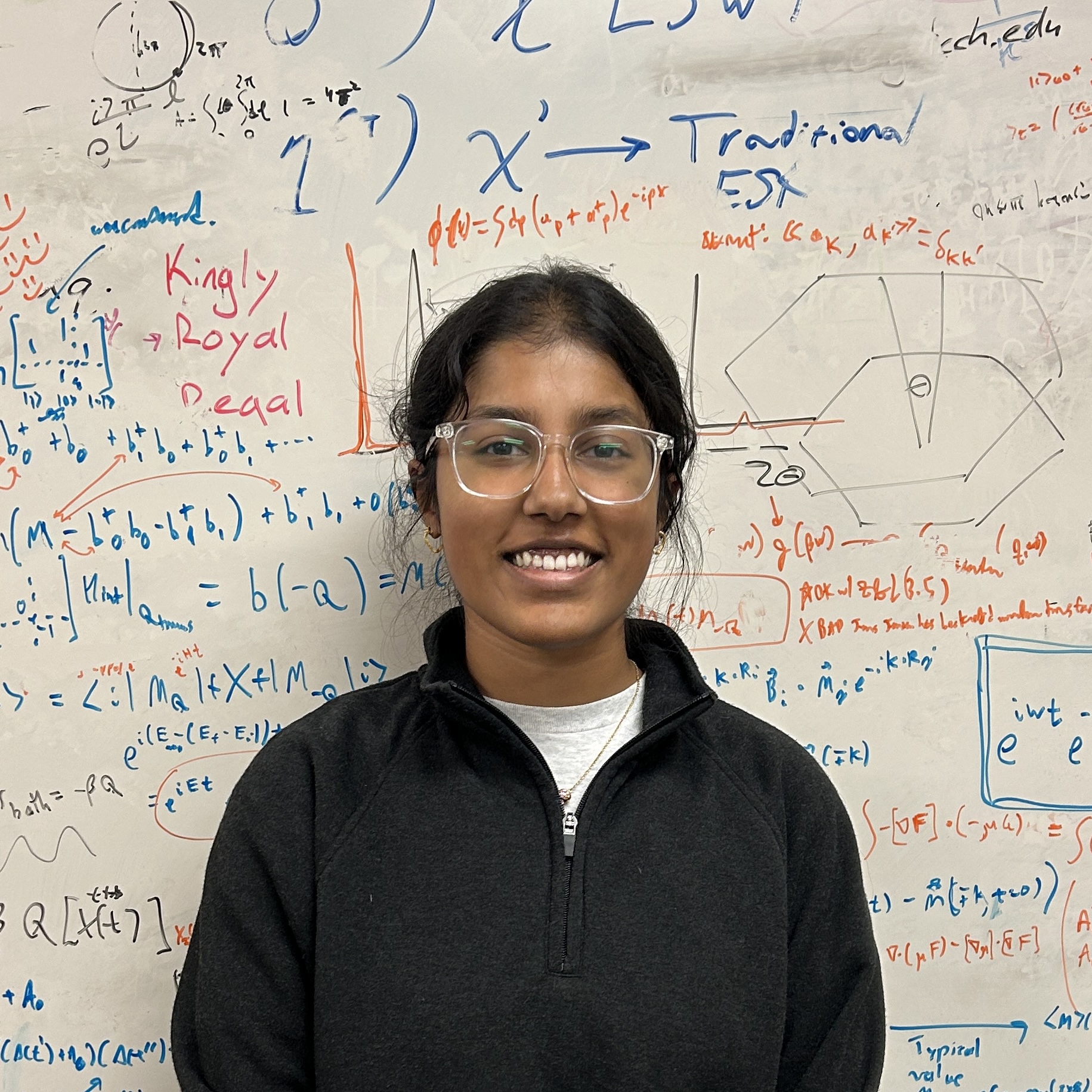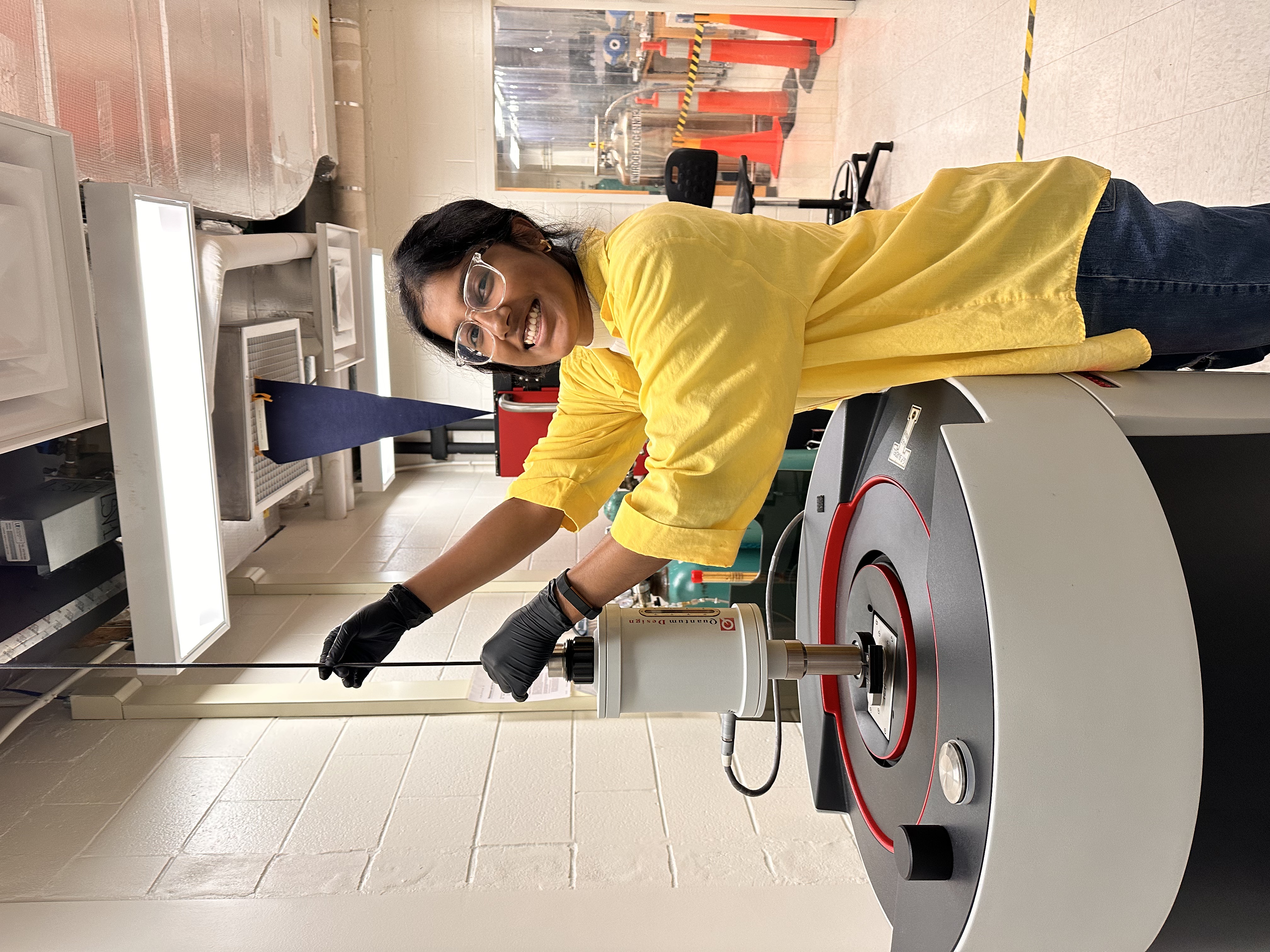Shreenithi Katta is graduating with the Research Option in Physics in December 2024. Her thesis, conducted under the direction of Dr. Martin Mourigal, discusses structural and magnetic properties of TmX3 and TmOX (X= Cl, Br, I).

How long have you been an undergraduate researcher at Georgia Tech?
I have been a researcher since the Fall of 2022, so I will be coming up on 2.5 years this December.
How did you get involved with undergraduate research?
I knew I wanted to do some kind of research in hopes of pursuing graduate research. The summer before my second year, I skimmed the research pages of all the physics faculty. I then sent out emails to everyone that I thought were interesting and only heard back from two professors. I chatted with Dr. Mourigal and I decided to join this lab at the very beginning of the fall semester, and I’ve been here ever since.
What are you working on?
I am working on determining the structural and magnetic properties of TmX3 and TmOX. I am looking to fully understand the microscopic interactions that lead to macroscopic properties of these materials and hopefully find something interesting or applicable to devices. The exact motivation behind looking at these materials is quite niche and hard to explain to the general audience. In essence, we are trying to understand as many materials as possible to find rare physics or a really niche property that can be applied to devices like quantum computers or semiconductor chips. A really good example is the search for high temperature superconductors. How did scientists first find superconductivity? Well, the first signature of superconductivity was using elemental mercury. Ever since, people have been simulating, creating, and testing hundreds of different materials under various conditions in order to find a room temperature superconductor. In this case, there is a really cool property that has been theorized and partially experimentally realized. In order to push the boundaries, scientists are looking to characterize the structural, magnetic, and electrical properties of various materials. In my case, there is a theorized quantum phase that many are looking to experimentally realize called the quantum spin liquid. There have been very few candidate materials that have been proposed, so many are testing similar materials to experimentally find a quantum spin liquid. We are focusing on the rare-earth materials as potential candidates since many have been studied and some have been proposed as spin liquid candidates. Though many have been studied, there is a gap in literature regarding TmX3 and TmOX. I am looking to fill this gap with my work!
What is your favorite thing about research/researching?
My favorite part about research is the challenge. Call me crazy, but I like the challenges that come with experimental work. It is obviously frustrating when equipment malfunctions or your sample disintegrates, something I have encountered countless number of times. My favorite part is when something I do manages to overcome the challenge that I have been struggling with for months. For example, the materials I work with are not commercially available for purchase, so I must make them using solid-state chemistry. The recipes are also not well known or reported, so I had to create my own recipe and test it for almost 4 months. This process was very frustrating but when I finally got a clean sample, it was so refreshing. There are other countless examples, but I like the challenges of experimental work, finding work arounds, and eventually solving problems.

What are your future plans and how has research influenced them?
Currently, I plan to pursue a PhD in physics, studying novel materials for potential device applications. This decision has been heavily influenced by the research I have done at Georgia Tech and the summers in between. I came into my freshman year planning on working in the space industry. Through my research, I’ve been introduced to a field I would have never known in high school and have come to greatly enjoy the work I do. The past few years have definitely allowed me to truly understand what parts of research I want to pursue and what parts I want to avoid.
